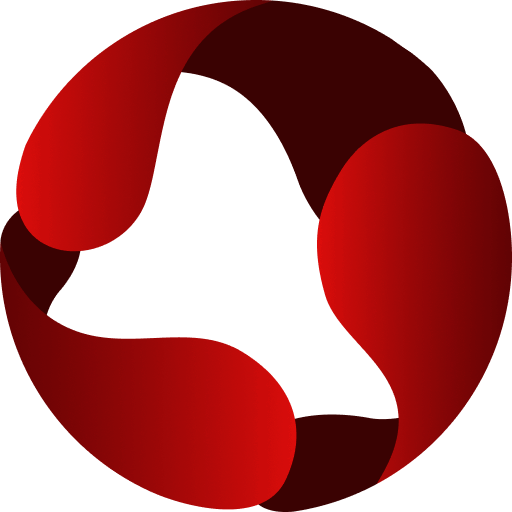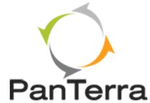Description

XenCALL

Zadarma
Comprehensive Overview: XenCALL vs Zadarma
XenCALL Overview
a) Primary Functions and Target Markets
XenCALL, now part of ReadyMode, is a software solution primarily developed for call center management and customer relationship management (CRM). Its key functions include auto-dialing, real-time analytics, lead management, and workflow automation. XenCALL is designed to enhance productivity and efficiency for sales-oriented businesses and call centers.
Target Markets:
- Call centers
- Telemarketing firms
- Sales organizations
- Customer service departments
b) Market Share and User Base
XenCALL has a niche market share largely concentrated within North America and sectors heavily invested in outbound sales and telemarketing. The cloud-based call center market is competitive, with players like Five9, RingCentral, and Talkdesk holding more extensive market shares. However, XenCALL is well-regarded for its feature-rich platform supporting small to medium-sized businesses.
c) Key Differentiating Factors
- Integrated CRM: Offers an intuitive CRM system that is directly integrated within the platform, removing the need for third-party software.
- Automatic Call Distribution (ACD): Enhanced ACD capabilities for efficient call routing based on various parameters.
- Predictive Dialer: Advanced dialing features to maximize contact rates.
- Real-Time Analytics: Comprehensive reporting and analytics for tracking performance metrics.
- Customization: High level of customization to tailor functionalities to specific business needs.
Zadarma Overview
a) Primary Functions and Target Markets
Zadarma is a cloud communication platform that provides VoIP services, virtual phone numbers, PBX, and telecommunication solutions. The primary offerings include affordable international calling, virtual PBX services, and robust integration capabilities with tools like CRM systems and API access.
Target Markets:
- Small to medium-sized enterprises (SMEs)
- Businesses looking for cost-effective international calling solutions
- Enterprises seeking flexible PBX solutions
- Remote work teams
b) Market Share and User Base
Zadarma serves a global user base, focusing on providing cost-effective telecommunication solutions. Its market share is substantial in the European market, where small to medium-sized enterprises opt for affordable VoIP services. Although not as dominant globally as larger players like Vonage or Twilio, Zadarma holds a competitive position in the budget market space.
c) Key Differentiating Factors
- Cost-Effectiveness: Known for its competitive pricing structure, especially for international calls.
- Global Reach: Offers virtual numbers in numerous countries, facilitating global communication for businesses.
- Flexibility: Scalable solutions catering to various business sizes with options for customization.
- Integration Capabilities: Strong API and integration options with various CRM and customer support tools.
- User-Friendly Interface: Designed for ease of use with simple setup and management functionalities.
Comparison Summary
While both XenCALL and Zadarma cater to communication needs, they target different aspects of the market. XenCALL focuses on enhancing call center efficiency with robust CRM and dialing solutions, making it more suitable for outbound-driven environments. In contrast, Zadarma emphasizes cost-efficient telecommunication services with strong global outreach for businesses looking to manage their communication costs effectively. The choice between them often depends on the specific operational requirements and budgetary constraints of the business in question.
Contact Info

Year founded :
2014
+1 800-694-1049
Not Available
Canada
Not Available

Year founded :
2006
+44 20 3769 1880
Not Available
United Kingdom
http://www.linkedin.com/company/zadarma
Feature Similarity Breakdown: XenCALL, Zadarma
When comparing XenCALL and Zadarma, both of which are cloud-based communication solutions, it's essential to focus on their commonalities and differences in features, user interfaces, and unique selling propositions. Here is a breakdown:
a) Core Features in Common
-
VoIP Capabilities: Both XenCALL and Zadarma provide Voice over Internet Protocol services, enabling users to make and receive calls over the internet.
-
Call Management: Features such as call routing, call queuing, call forwarding, call recording, and voicemail are commonly available in both platforms.
-
CRM Integration: Both systems offer CRM integrations that help in managing customer interactions and storing customer data efficiently.
-
Analytics and Reporting: They both offer analytics and reporting tools to track call performance and other critical metrics, helping businesses make informed decisions.
-
International Calling: XenCALL and Zadarma offer international calling capabilities, supporting businesses that operate globally.
-
Cloud-Based Solutions: Both platforms are cloud-based, providing flexible usage without the need for extensive on-premise equipment.
b) User Interface Comparison
-
XenCALL: The XenCALL interface is generally designed to be user-friendly, focusing on the needs of call centers. It has a comprehensive dashboard that displays real-time metrics and call details, prioritizing efficiency for sales and support teams.
-
Zadarma: Zadarma's interface is clean and straightforward, designed for ease of navigation. It's intended to be intuitive for users who may not have a technical background. The interface is functional, emphasizing usability and straightforward access to VoIP functions.
While both aim for ease of use, XenCALL might have a more complex set of tools aimed at handling a higher volume of sales or support interactions, whereas Zadarma keeps things simple for broader VoIP use cases.
c) Unique Features
-
XenCALL:
- Predictive Dialing: A standout feature of XenCALL is its predictive dialer technology, which automatically dials numbers and connects agents only when a live call is detected, significantly boosting efficiency in call centers.
- Advanced CRM Features: XenCALL comes with an in-built CRM with advanced functionalities tailored for sales teams, including lead scoring and detailed customer interaction tracking.
-
Zadarma:
- Integration with Multiple Services: Zadarma offers a wide range of integrations with third-party tools and services, including cloud storage and data analytics platforms, which can be a significant advantage for businesses needing a more extensive tech ecosystem.
- Free Cloud PBX: Zadarma provides a free cloud PBX service that can be very attractive for small businesses or startups looking to minimize costs while leveraging robust PBX features.
Both products have their distinct strengths, making them suitable for different types of businesses and use cases. XenCALL’s advanced call management features make it ideal for larger sales-focused organizations, whereas Zadarma’s versatility and cost-effectiveness appeal to a broader market, including SMEs and startups.
Features

Call Management
Contact Management
Analytics and Reporting
Integrations

Efficient Customer Support
Reliable VoIP Services
User-Friendly Interface
Convenient Virtual Numbers
Flexible PBX System
Best Fit Use Cases: XenCALL, Zadarma
When evaluating XenCALL and Zadarma, it's important to consider the unique characteristics and strengths of each platform to determine their best fit use cases.
XenCALL
a) Best Fit Use Cases:
- Outbound Call Centers: XenCALL is particularly well-suited for businesses that need robust outbound calling capabilities, like sales organizations that rely heavily on telemarketing or cold calling.
- Lead Management: Companies that benefit from integrated lead management features may find XenCALL attractive due to its CRM capabilities that allow seamless tracking and nurturing of leads.
- Small to Medium Enterprises (SMEs): SMEs looking for an integrated solution to manage both customer interactions and sales processes in one place can leverage XenCALL’s automation and efficiency.
- Sales-Driven Organizations: Businesses with a primary focus on driving sales through direct customer engagement (e.g., B2B sales) will benefit from XenCALL’s comprehensive sales and workflow automation features.
Zadarma
b) Preferred Scenarios:
- Cost-Conscious Small Businesses: Zadarma offers competitive pricing and pay-as-you-go options, making it ideal for startups and small businesses with limited budgets looking for cost-effective communication solutions.
- Global Organizations: Companies with international operations may prefer Zadarma due to its strong global reach, including competitive international call rates and virtual numbers in numerous countries.
- VoIP and Virtual PBX Needs: Businesses that need a straightforward VoIP solution or virtual PBX system for internal communication without extensive CRM integrations or sales automation might find Zadarma to be more suitable.
- Remote or Distributed Teams: Thanks to its flexibility and cloud-based nature, Zadarma can cater to organizations with remote teams needing reliable and scalable communication tools.
Industry Verticals and Company Sizes
d) Industry Verticals/Company Sizes:
-
XenCALL: Primarily caters to industries like retail, finance, insurance, and real estate where outbound sales calls and lead management are critical. The system’s scalability makes it suitable for growing companies and small to medium-sized businesses with a dedicated salesforce.
-
Zadarma: With its broad range of VoIP services, Zadarma can cater to various industries including e-commerce, travel, and IT. It's particularly beneficial for startups and smaller companies due to its low-cost solutions. Larger corporations with a focus on international operations may also use Zadarma for its global communication capabilities.
In summary, the decision between XenCALL and Zadarma largely depends on the specific needs of a business, particularly around sales processes, international operations, and budget constraints. XenCALL is a strong choice for sales-centric businesses needing integrated CRM systems, while Zadarma is ideal for companies seeking cost-effective, globally capable VoIP services.
Pricing

Pricing Not Available

Pricing Not Available
Metrics History
Metrics History
Comparing teamSize across companies
Conclusion & Final Verdict: XenCALL vs Zadarma
To provide a conclusion and final verdict for XenCALL and Zadarma, we need to assess various facets such as features, pricing, ease of use, customer support, integration capabilities, and user feedback.
a) Best Overall Value
Zadarma tends to offer the best overall value primarily due to its pricing structure and range of features. Zadarma is known for being cost-effective, especially for small to medium-sized businesses that require a comprehensive communication solution without a significant financial outlay. Its pay-as-you-go model and free CRM integration make it particularly attractive for those who are budget-conscious yet need robust functionality.
XenCALL offers extensive CRM and call center solutions tailored for sales-driven organizations. Its comprehensive suite of features is ideal for businesses that prioritize advanced sales automation and analytics, making it valuable for organizations where revenue generation and customer interaction tracking are critical.
b) Pros and Cons
XenCALL Pros:
- Advanced CRM and sales automation features.
- Strong analytics and reporting capabilities.
- Excellent for businesses focused on sales and customer tracking.
- Integrated dialer and CRM in one platform.
XenCALL Cons:
- Can be expensive compared to other options.
- Steeper learning curve for new users.
- May include features more suited for larger enterprises.
Zadarma Pros:
- Cost-effective with pay-as-you-go pricing.
- Includes free basic CRM functionality.
- Easy to set up and user-friendly interface.
- VoIP services with a broad range of integrations.
Zadarma Cons:
- May lack some advanced features needed by large enterprises.
- Customer support can be limited depending on region.
- The free tier may not suffice for businesses requiring extensive CRM capabilities.
c) Recommendations
-
Budget Considerations: For businesses tight on budget or startups, Zadarma offers a flexible pricing model with sufficient features to manage customer interactions and communications efficiently.
-
Feature Depth and CRM Needs: Companies looking for in-depth CRM capabilities that integrate seamlessly with their call operations will find XenCALL's offerings comprehensive and valuable, particularly if they expect high outbound sales activity.
-
Business Size and Scale: Smaller companies or those with straightforward communication needs might benefit more from Zadarma's simplicity and cost-effectiveness, whereas larger companies with complex sales processes might prefer XenCALL's robust feature set.
Overall, users should evaluate what aspects of call and customer management are most critical to their business operations and choose the solution that aligns best with their strategic goals and budget constraints.
Add to compare
Add similar companies




